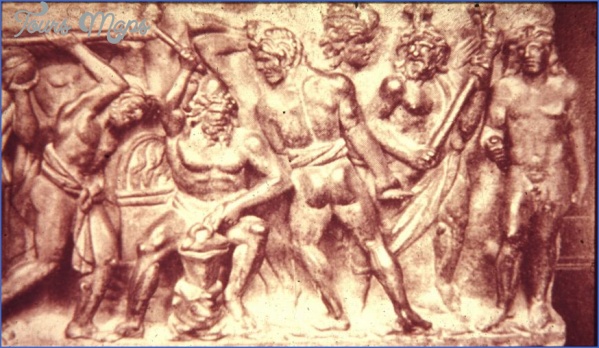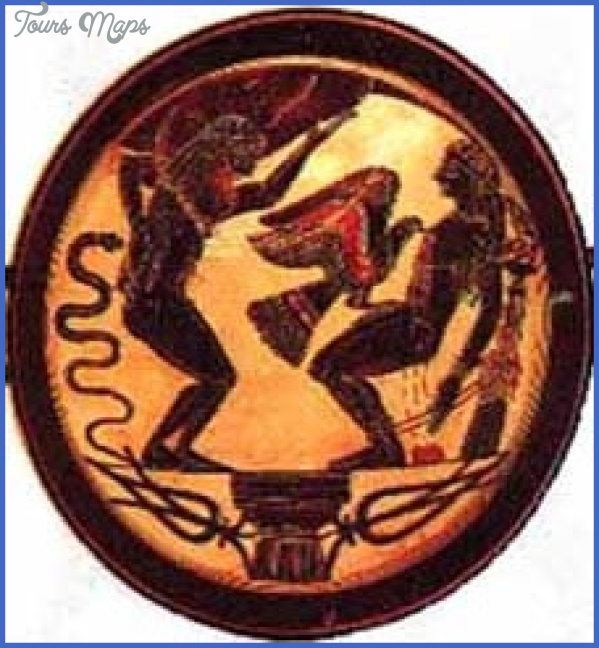Temptation lies at the heart of many of the myths of Corinth (called Ephyra in early literature), not least the temptation of Pandora and its disastrous consequences. Its origins lay almost 20 km (12 miles) west, in Sicyon: to settle a dispute between the gods and men, the trickster-Titan Prometheus made sacrifice. Butchering an ox, he wrapped the meat in its hide and the bones in glistening fat, and bade Zeus choose which portion he preferred. Zeus chose the larger – the package containing the bones. When he discovered his mistake, Zeus was incandescent. Not only had he been exposed as injudicious, he had set a precedent: ever afterwards mankind burned only an animal’s bones and fat in sacrifice, reserving the flesh for feasts. When Prometheus compounded the insult by stealing fire from heaven and giving it to men, Zeus exacted punishment. He had the Titan chained to a rock, where a vulture devoured his ever-regenerating liver, and created a misleading package of his own, a ‘savage beauty’, beguiling to look at, destructive within: Pandora, the first woman. Hesiod describes how Hephaestus shaped earth into the body of a modest girl; grey-eyed Athene gave her a robe and belt; god-like Seduction and the Graces gave golden necklaces; and the Seasons wove spring flowers into a garland for her hair. Hermes implanted lies, persuasive and cunning in her breast and named the girl Pandora [‘All-Gifted’], because the gods had given her so many gifts to be the ruin of mankind.
Prometheus, Pandora & the Pithos Photo Gallery
Zeus gave her as wife to Epimetheus, Prometheus’ dullard brother, together with a wedding present: a large pithos (storage jar), which he told Pandora not to open. Naturally, she disobeyed, discovering too late what it contained: tiny winged spirits, the embodiment of distress and sorrow. Immediately they swarmed out of the jar. ‘Only Hope remained beneath the rim, and did not fly out. The lid prevented her, thanks to the will of Aegis-Wearing Zeus, Cloud-Gatherer. But ten thousand plagues now jostle men. The earth is full of sorrows; and full, too, the sea.’
With which Sisyphus, the mythical founder and king of Corinth, would wholeheartedly agree.
Maybe You Like Them Too
- Theseus & Peirithous
- The Voyage of the Argo Begins
- Minos, his Loves & his Family
- The Centaurs
- Athens in History & Today




















